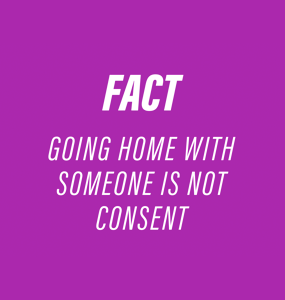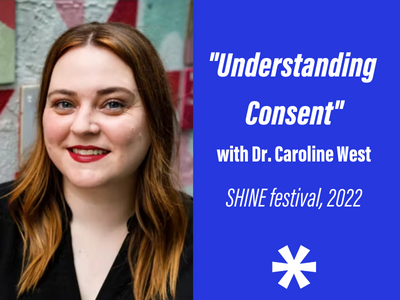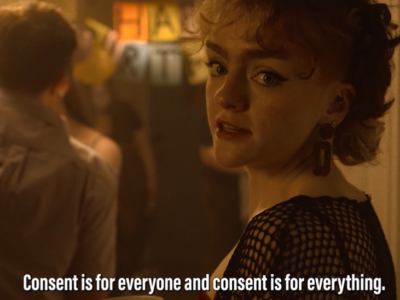Where can I get help if myself or a friend have had a negative sexual experience?
If you have had a negative sexual experience, click here to learn more about your options for reporting and getting support. Remember, it is not your fault that this happened and there are many options to help you through this difficult situation.
If you are supporting your friend following a negative sexual experience, it is very important to listen to them, believe them, and ask how you can help.
Here are some tips for responding to someone who tells you about a negative sexual experience from our “Start Here” campaign:
- Do say “I believe you”: Opening up about a negative sexual experience can be very stressful, so reassure the person that you believe them, and that you are here to support them and listen.
- Don’t say things like “Were you drunk?/What were you wearing?/Are you sure that’s what happened?”: That sounds like you think it’s their fault. Try to listen without judgement.
- Don’t rush them into telling the whole story if they don’t want to: Follow their lead – they might just tell you a little bit, or they may need to tell you the whole story.
- Do ask how you can help: You could offer to find out about support services. Even just listening can make a huge difference.
- Don’t say things like “I can’t believe this, I’m going to kill them!”: While it is difficult to hear about someone’s negative experience, take a breath and try to focus on their feelings, instead of your own.
- Don’t pressure them into reporting the incident before they are ready: Whatever happens next should be the survivor’s choice. Pressuring them to take action they don’t want can be disempowering and retraumatizing.
- Do ask “What do you want to do next?”: They might not know what they want to do right away, but whatever happens next needs to be the survivor’s choice.
- Do remember to look after yourself: Hearing about a negative sexual experience can be very difficult, especially if you have had your own negative experiences. Make time for your own self-care and mental wellbeing.
For more information about support services available for survivors of sexual assault/harassment, visit our Get Help page.
If you are struggling to cope after learning about a friend’s negative sexual experience, you can also make use of these support services.











